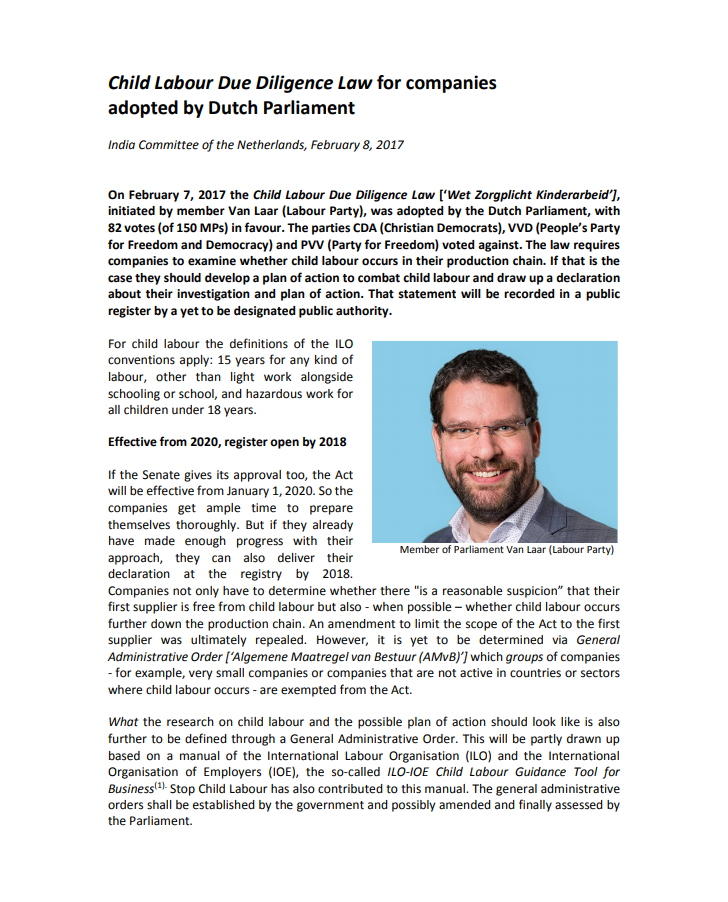Worst Forms of Child Labour Convention, 1999 (No. 182)
LegislationThis fundamental convention defines as a "child" a person under 18 years of age. It requires ratifying states to eliminate the worst forms of child labour, including all forms of slavery or practices similar to slavery, such as the sale and tra...Read More

